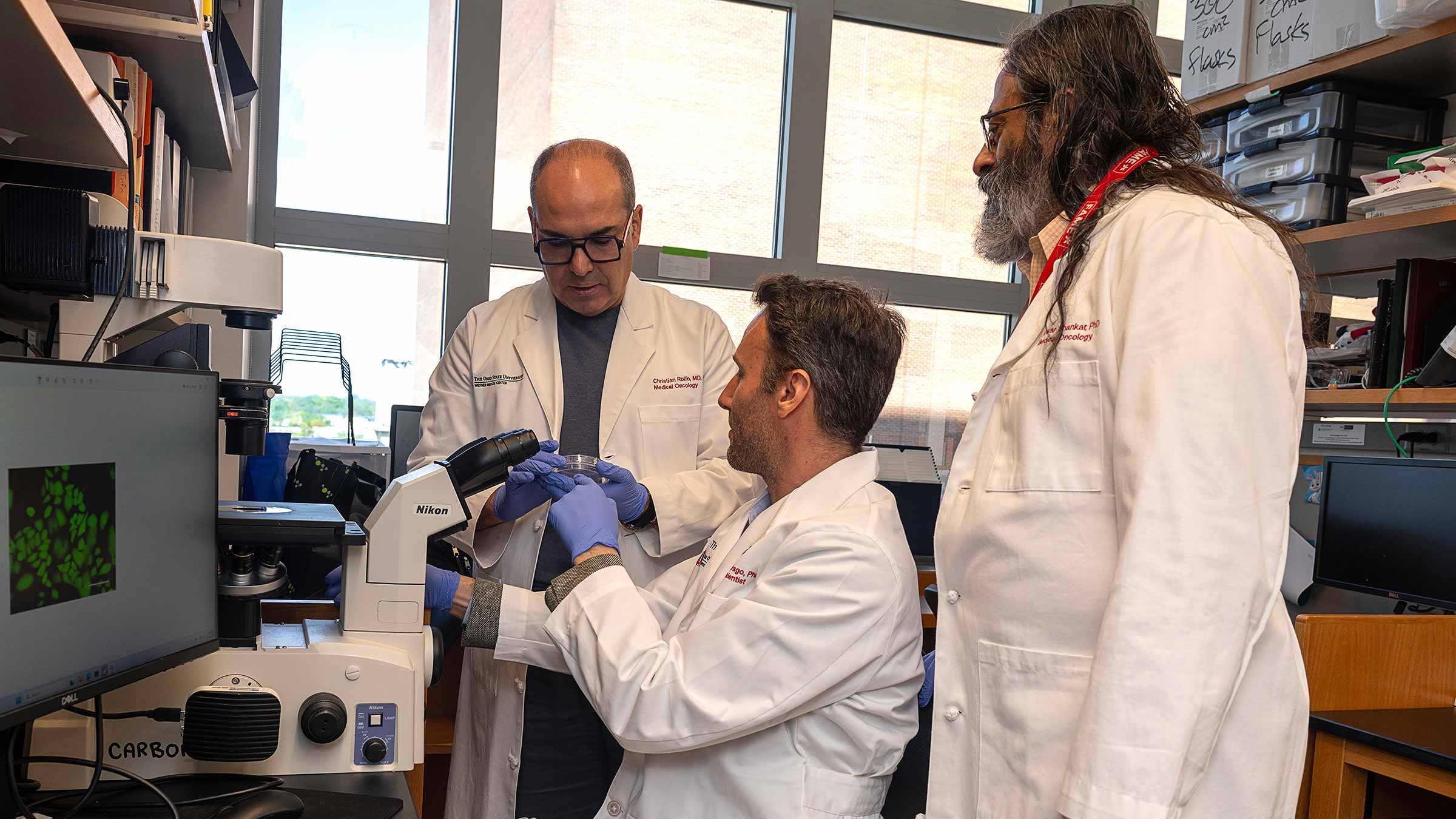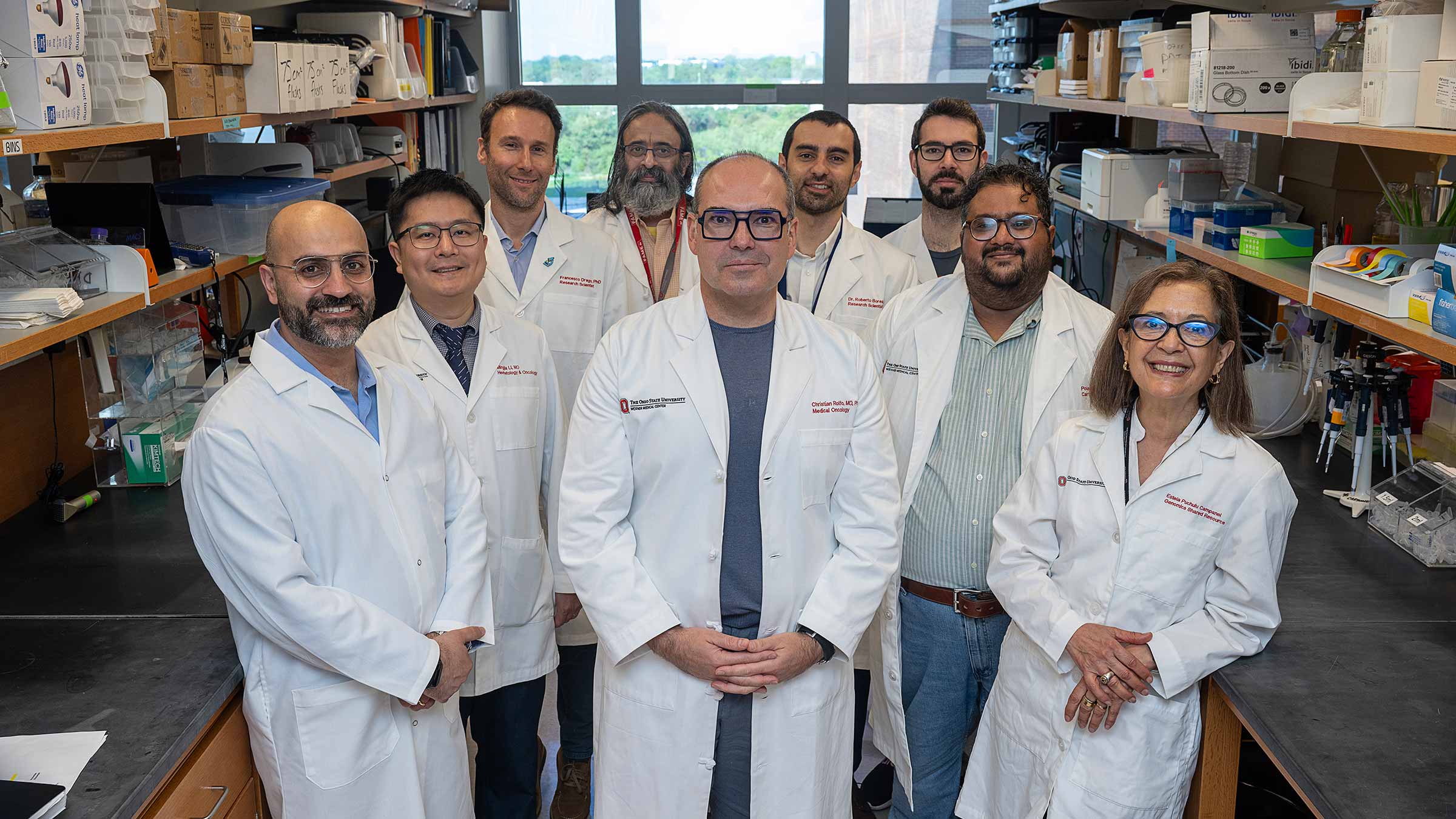Transforming cancer research into lifesaving treatments
International expert Dr. Christian Rolfo brings a global track record of turning cancer discovery into detection and treatments to his new role at Ohio State.
In his childhood home in Argentina, Christian Rolfo, MD, PhD, MBA, learned the value of helping others while serving as a crosswalk guard at his school.
But he dreamed of helping people in bigger ways and longed to go to Italy, where his family originated.
His dream would later take him to several countries around the globe, starting with Italy and proceeding to Spain, Belgium and the United States.
Along the way, he picked up six languages: Portuguese, Italian, Spanish, Catalan, Dutch and English.
He also developed a global reputation for his pioneering work in liquid biopsy and other medical innovations.
Dr. Rolfo, who came to Ohio State in August 2024 to direct the Division of Medical Oncology and serve as a medical scientist at the OSUCCC – James, believes his desire to be a doctor and his deep empathy for patients are also rooted in his youth.
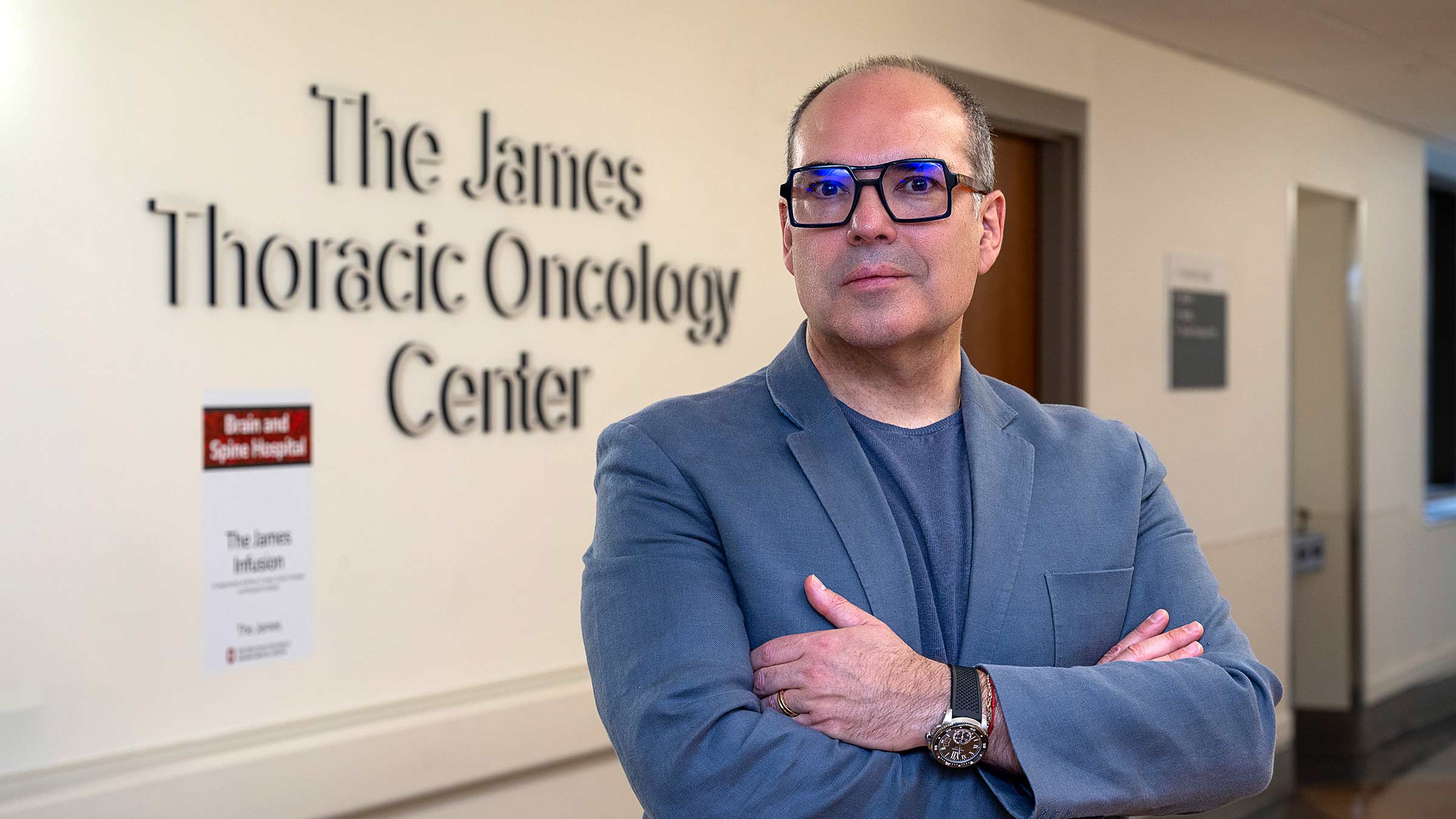
“Since I was 6 years old, I wanted to be a doctor and to work in Italy,” he says, explaining that his grandparents were Italian immigrants to Argentina who ultimately settled in Cordoba, his hometown. “I studied Italian and had many Italian associations. Always there was Italy around me, and I had a constant inspiration to learn about it.”
He finally got to go there after earning his medical degree at the University of Cordoba and gaining a fellowship to study breast cancer at the University of Milan. He knew this move would give him a better chance to do lifesaving cancer research.
Before leaving Argentina, Dr. Rolfo worked with several oncologists who would mentor him and help him further his career. He still collaborates with several researchers and institutions there, serving as a mentor to many young and upcoming physicians. In May 2025, the University of Buenos Aires granted him the title of Doctor Honoris Causa, its highest honorary distinction, in recognition of excellence and outstanding merits.
In Italy, he began his journey as a physician of the world whose far-reaching medical experiences in several countries would one day lead him to Ohio State’s cancer program.
Contributing from the start
Dr. Rolfo was in Italy for seven years, studying not only breast cancer but also sarcoma (cancers that arise in soft tissue or bone), earning a PhD in experimental and clinical oncology, and helping to advance new treatments.
Notably, he assisted with a phase I clinical trial of the drug imatinib (Gleevec) for treating people with gastrointestinal stromal tumor (GIST), an aggressive cancer that offered only a two-month median life expectancy after diagnosis. Dr. Rolfo says this drug, which targeted KIT gene mutations found in 70% of GIST cases, had a remarkable effect in many patients who suddenly achieved lasting remissions. Gleevec received FDA approval in 2001.
“When we saw these patients responding so amazingly well, I knew I wanted to dedicate my career to molecular oncology,” Dr. Rolfo says.
From Italy he went to Spain and worked for eight years at a private medical center, focusing on the study of lung cancer characterized by EGFR gene mutations and assisting in the development of drugs for treating certain patients with non-small cell lung cancer.
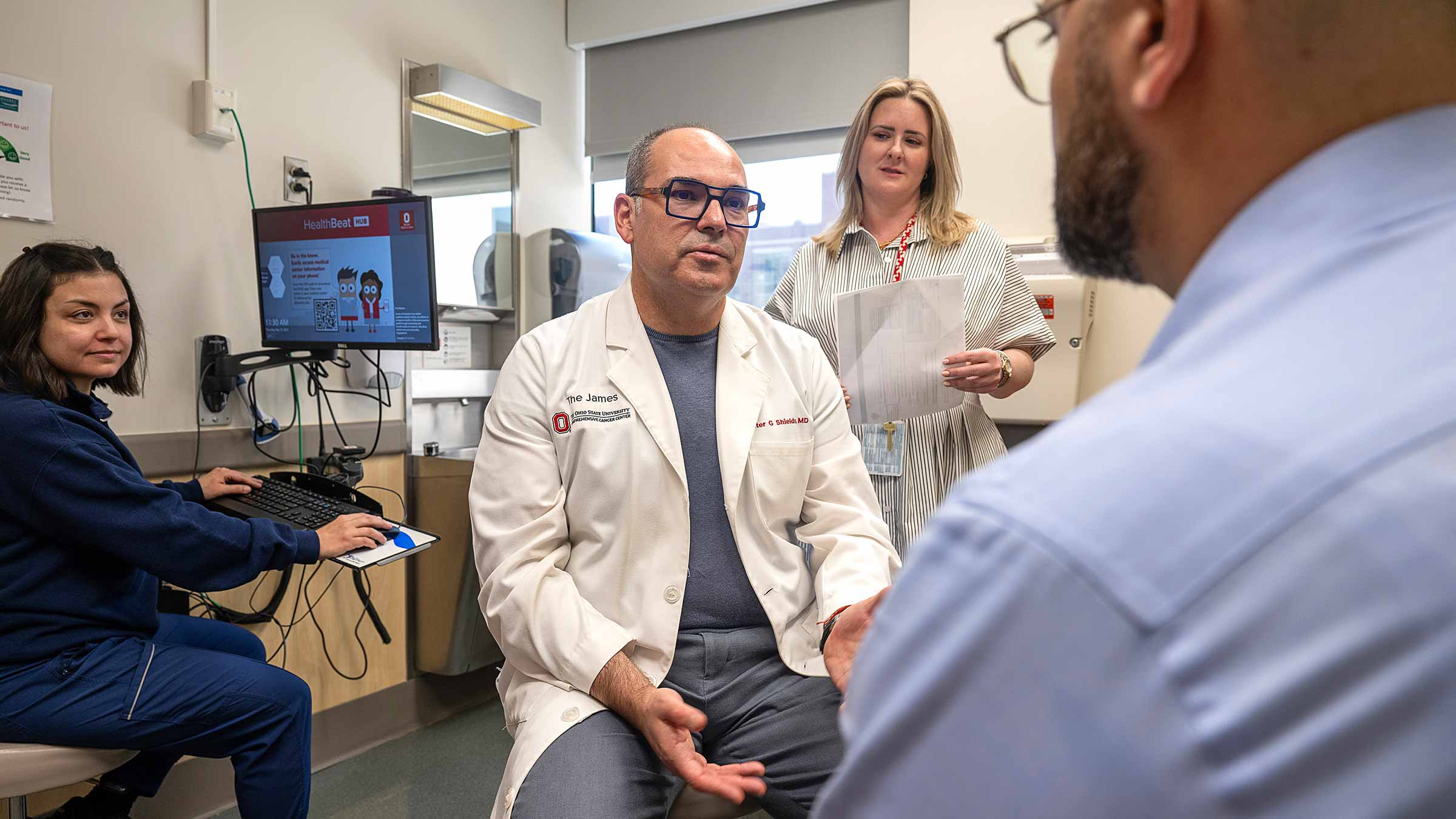
“With the Spanish Lung Cancer Group, and under the direction of Dr. Rafael Rosell, we published some of the first data on the EGFR mutation in The New England Journal of Medicine, and then we did the first study of targeted therapy instead of chemotherapy for patients with these mutations, changing the paradigm for lung cancer treatment,” he says.
He next became a professor for six years at the University of Antwerp in Belgium, where he directed the phase I program and ran a lab that conducted pioneering work in liquid biopsy, a relatively new tool that uses a blood test for early detection of cancer.
“In liquid biopsy, we can take any fluid from the body — most often from blood draws — and analyze it for biomarkers that correlate with cancer,” Dr. Rolfo says.
“There are things in the blood, such as DNA, extracellular vesicles (particles released by cells) and circulating tumor cells, that can help us understand biological processes and select patients for targeted therapies or immunotherapies,” he says.
“Within the International Association for the Study of Lung Cancer,” says Dr. Rolfo, “we developed the first guidelines for liquid biopsy application in thoracic oncology in 2018, published an update in 2021, and are working on still another update now, so we have contributed greatly to putting this procedure into today’s medical practice.”
His groundbreaking work in liquid biopsy, biomarker research, drug development and thoracic oncology continued with his subsequent moves to the University of Maryland in Baltimore, the Icahn School of Medicine at Mount Sinai in New York City, and ultimately to the OSUCCC – James.
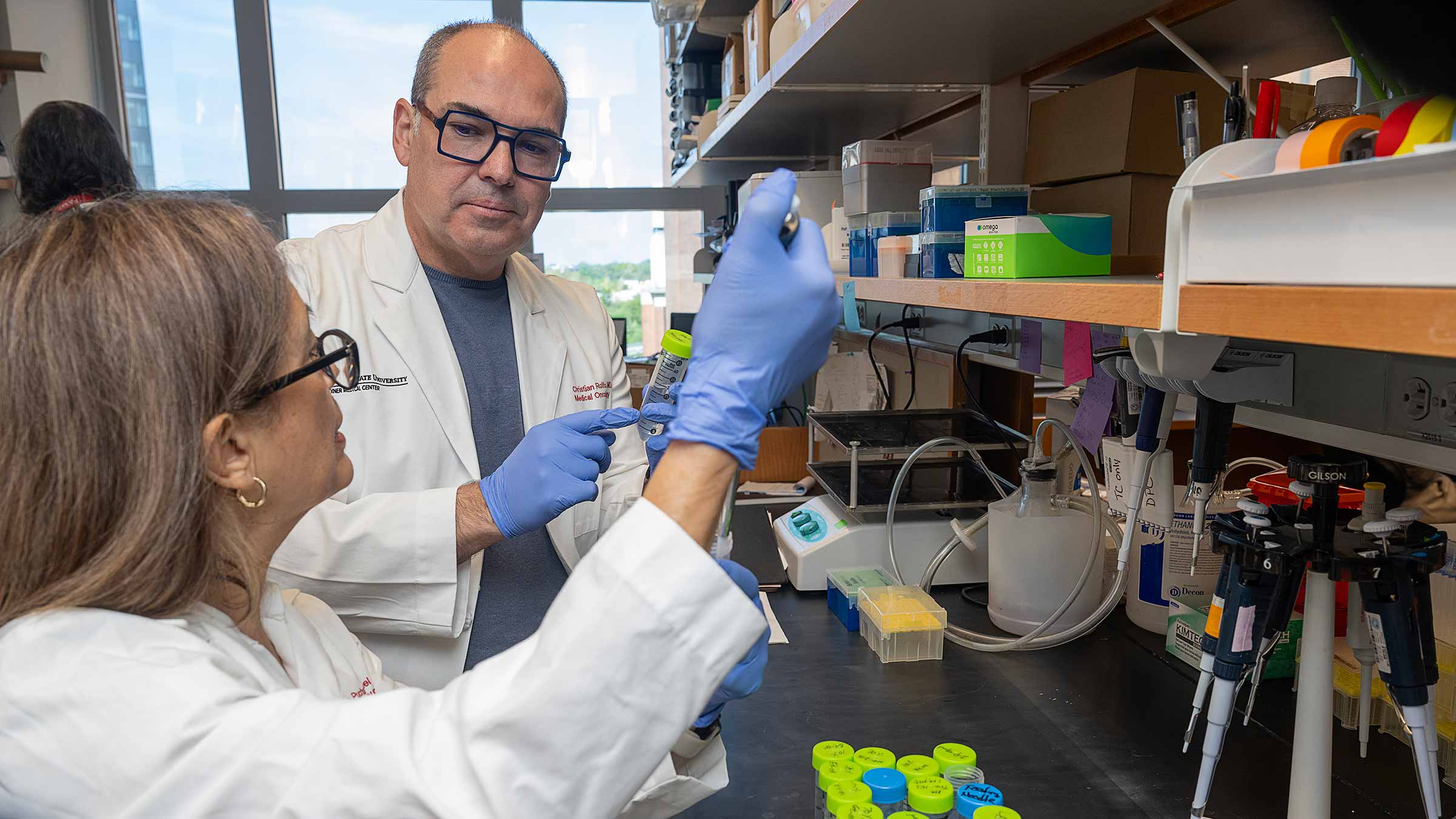
A challenge to turn discovery into innovative treatment
No doubt Dr. Rolfo, who also is president of the International Society of Liquid Biopsy, could work at any medical institution, but he chose Ohio State after learning about the division director opening, even though he knew little about the university or the region.
“I Googled it because I didn’t know where Columbus, Ohio, is,” he recalls, adding that he was quickly captivated by the cancer program. “When I visited, I was shocked at how impressive the facilities are and the abundance of collaborative research opportunities. I also was impressed by how proud the people are to belong to Ohio State. Everyone spoke so highly about this place!”
After talking it over with his wife — Virginia Garrido Verd, a criminal lawyer who works remotely for a firm in Spain — he accepted the job, and the couple moved west from New York with their son, Marco, now 7. Dr. Rolfo oversees some 90 faculty who provide subspecialized care and conduct research for multiple types of solid tumors.
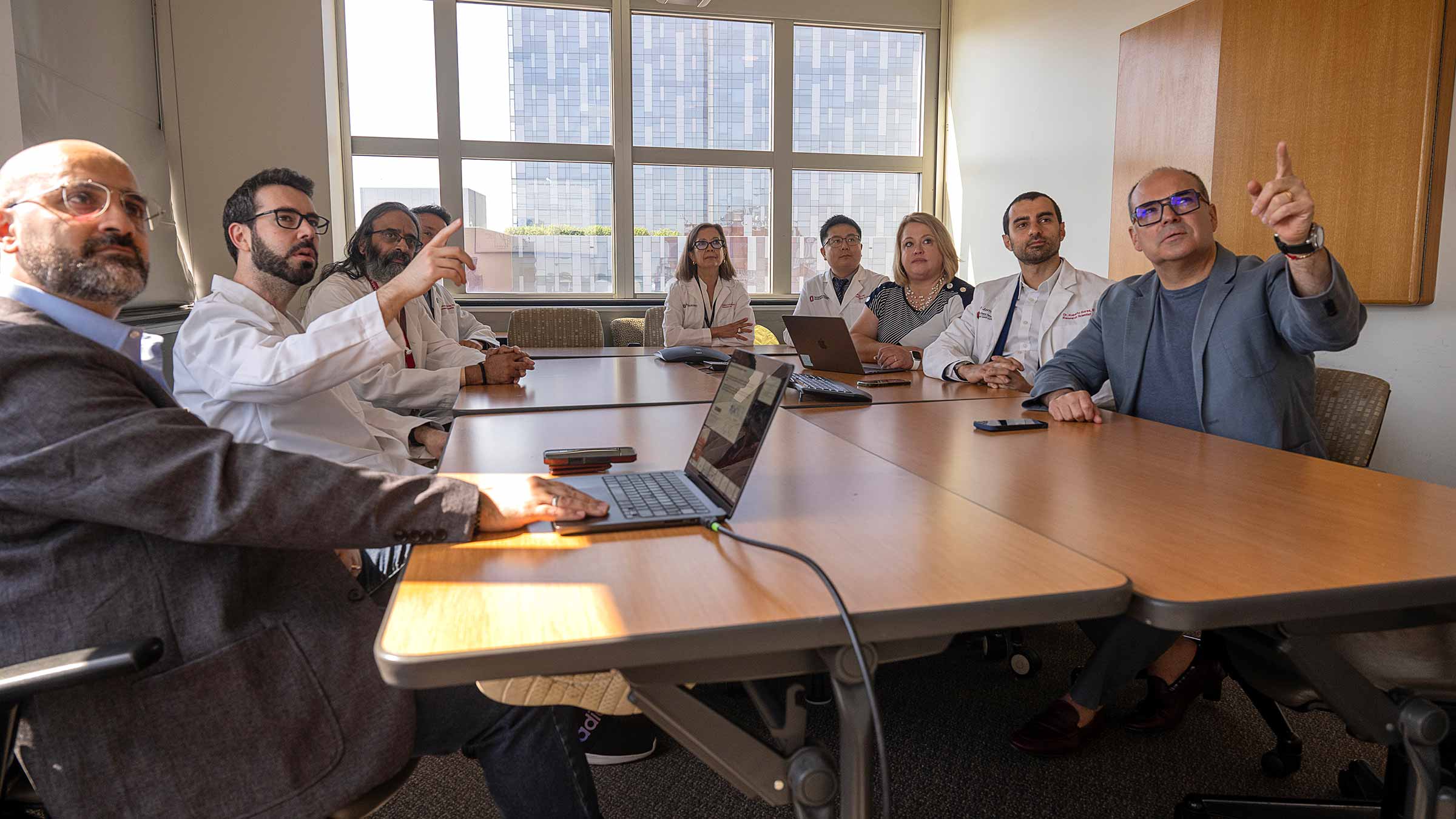
“This role enables me to contribute my background in different types of cancer and from different countries to the mission of the OSUCCC – James,” Dr. Rolfo says. “This is not a place where you have to build a program from scratch, but is one with a long tradition of excellence that is striving for even greater renown and achievements. I love this kind of challenge.”
He’s especially excited about the impact that he and colleagues will have on patients.
“We have a big patient population, and our translational research enables us to convert more and more laboratory discoveries to innovative treatments,” says Dr. Rolfo, who also serves as associate director for early-phase clinical trials.
“In that role,” he says, “my mission is to work with our Drug Development Institute to generate more phase I clinical trials for testing our newly discovered drugs in patients to see how well they work, and then to bring the drugs back to the lab to study them further, so we can refine and improve them.”
He finds this work fascinating and thinks patients should be equally excited about it.
“We’re not just seeing patients in the clinic but also improving the way we can identify their molecular subtype of cancer, select the best treatment for it and monitor their response,” Dr. Rolfo says.He adds that he’s grateful for the strong philanthropic support the cancer program receives from a generous community through such movements as Pelotonia, the annual cycling event series that raises millions of dollars for cancer research at the OSUCCC – James.
Pelotonia dollars have supported his research at Ohio State, and Dr. Rolfo plans to give back by participating in Pelotonia 2025, although he’s not an avid cyclist and has little time to train as a rider. “But I will participate in some capacity, for sure,” he says. “If not as a rider, then as a challenger or volunteer.”
Continuing compassion
Dr. Rolfo looks forward to his years at the OSUCCC – James, where he hopes to further his legacy as a medical scientist who has mentored learners from many lands and improved the lives of countless people with cancer — his ultimate concern.
“I’d like to be remembered as someone who played a lead role in the development of liquid biopsy as something new that can be applicable to patients, and for other beneficial innovations in thoracic oncology as well,” he says.
Although he knew from his days in medical school that, as an oncologist, he would see much suffering, he’s proud of his unrelenting work to lighten it.
“From the love I’ve received from patients around the world, I know that is happening,” he says. “I’m blessed to contribute to their well-being from so many angles — not just from my leadership position, but from my lab research, my work in drug development and my clinical expertise.
“Impacting the life of just one patient would be enough. Impacting the lives of many is an even greater privilege.”

We’re creating a cancer-free world
Our experts develop and deliver the most advanced targeted treatments leading to better outcomes and more hope.
Learn More


